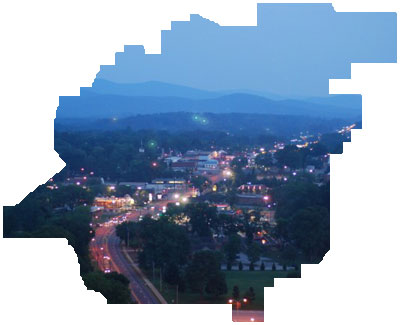
 |
 Welcome to Calhoun County!
Welcome to Calhoun County! The Calhoun County Commission would like to welcome you to the Calhoun County web site and hope you will return often. We intend to make this a site which will benefit each and every citizen of Calhoun County by providing valuable information into the day-to-day operation of your county government. From our Web site you will have access to the following online systems: GIS mapping and tax system, Business Personal Property, online tax payments, online tag renewals, business licenses renewals, mobile home renewals, and answers to general questions about how to make your stop at the Ken Joiner Administration Building as pleasant as possible.
Calhoun County Stormwater Information |
 |
|---|---|
Facing tough times or looking to volunteer? |
 |
Not sure where to stay, eat or shop? We can help! |
 |
The Chief Ladiga Trail is steeped in history and nature—traversing through the countryside, forests, and wetlands of Calhoun and Cleburne Counties. |
 |
Questions about paying tickets, court appearances or other legal matters handled at the Courthouse can be found here. |
https://calhoun.alacourt.gov/ |
Calhoun County Liquor Tax Information can be found here. |
Liquor License Information |
GIS Mapping System: View maps, appraisal info, locate by owner or address.
Online Tax Payments: Pay your Property Taxes online with check or Credit Card.
Online Tag Renewal: Avoid standing in line, renew your tag online.
Online Boat Renewal: Renew your boat decal online.
Online Manufactured Home Renewal (Oct - Nov): Renew your manufactured home decal here.
Online Business License Renewal (Oct): Renew your Business License here.